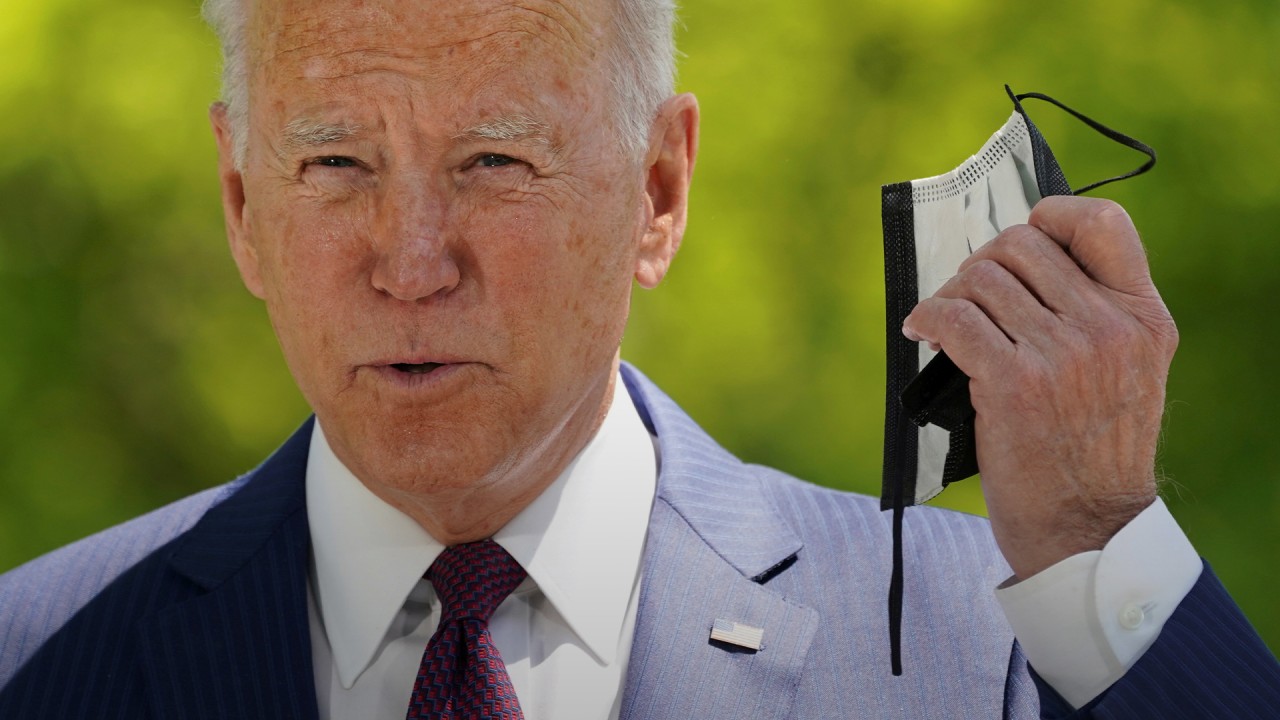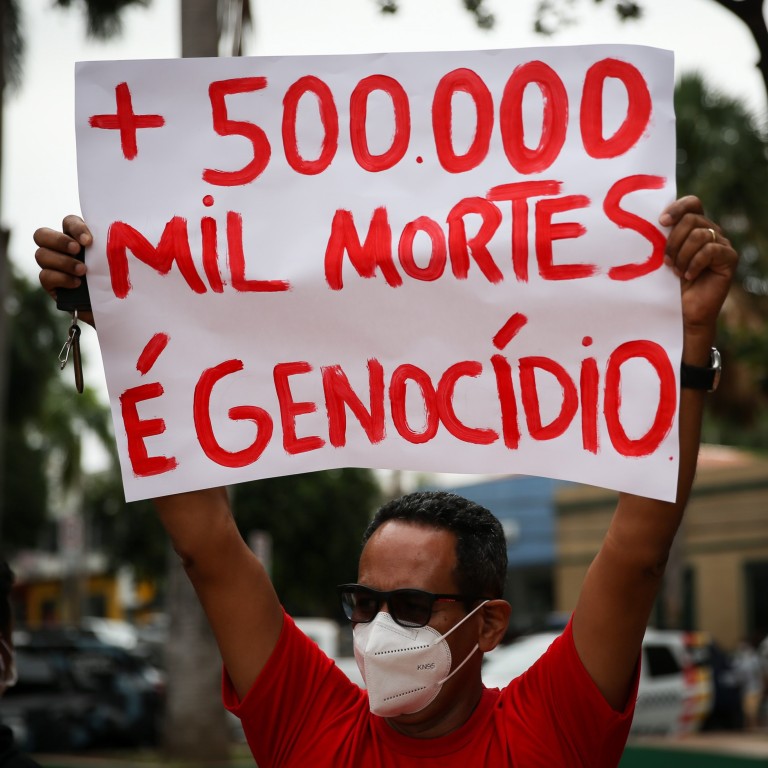
Coronavirus: Brazil’s death toll tops 500,000; Afghanistan needs oxygen
- Brazil’s reported death toll is second only to that of the US, where the number of lives lost has topped 600,000
- Tokyo Governor Yuriko Koike says plans to hold mass public viewings of the Olympics at six public sites have been cancelled
Brazil’s health ministry is working to speed up Covid-19 vaccinations as the death toll rose to more than 500,000 since the start of the pandemic.
The nation of 210 million people has been reporting an average of more than 2,000 daily deaths in recent days. Brazil’s reported death toll is second only to that of the US, where the number of lives lost has topped 600,000.
Health Minister Marcelo Queiroga confirmed that the official death toll had passed 500,000.
“I am working tirelessly to vaccinate all Brazilians in the shortest time possible and change this scenario that has plagued us for over a year,” Queiroga tweeted.
Brazil president fined for maskless motorcycle rally in Sao Paulo
Brazil is registering more than 70,000 confirmed coronavirus infections every day. Just 11.4 per cent of the population has been fully vaccinated, according to the government.
Brazilian President Jair Bolsonaro has downplayed the coronavirus while trying to keep the economy humming. He dismissed the scourge early on as “a little flu” and has scorned masks.
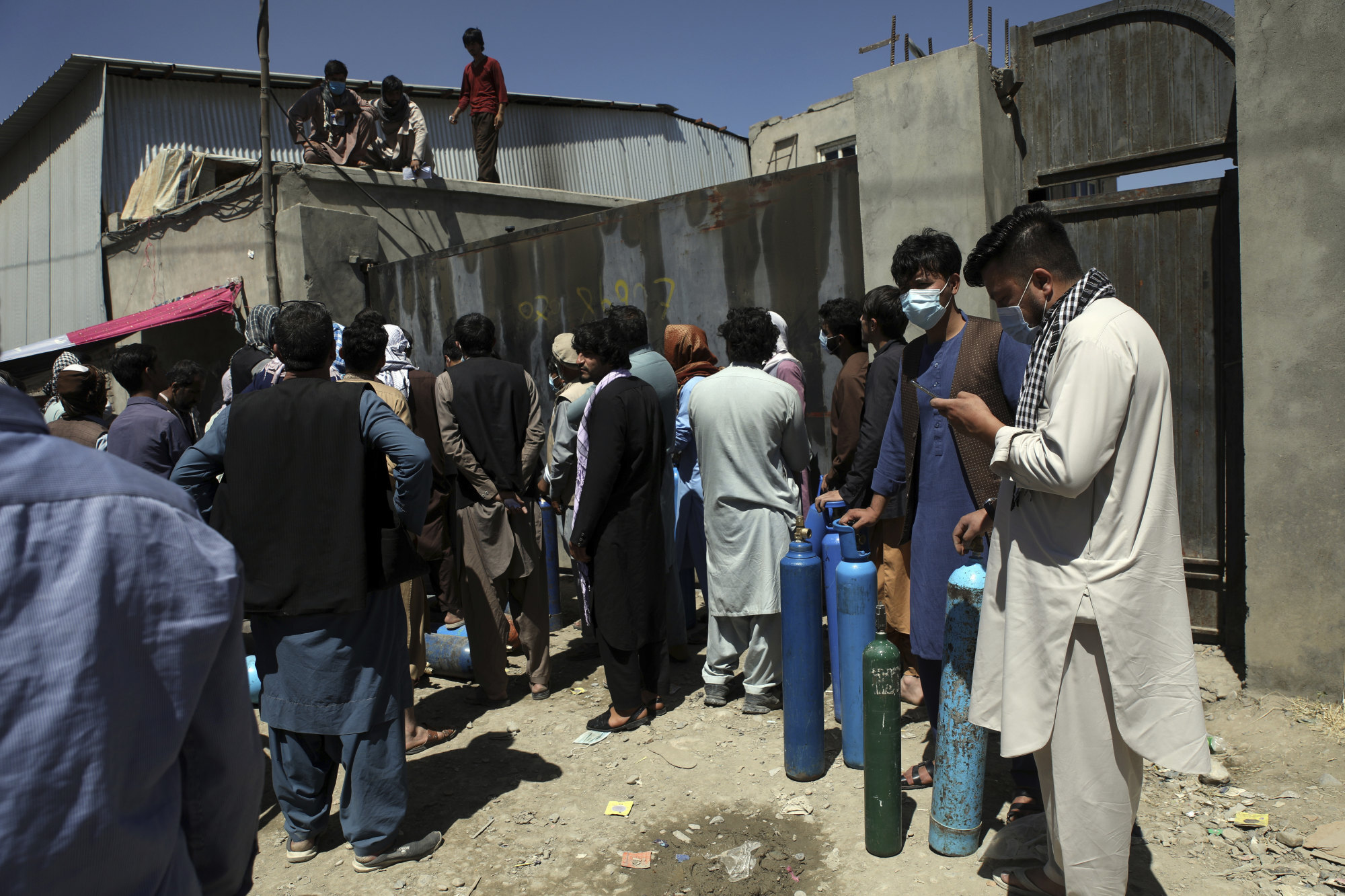
Afghanistan in need of oxygen
Afghanistan’s is racing to ramp up supplies of oxygen as a deadly third surge of Covid-19 worsens, a senior health official said.
The government is installing oxygen supply plants in 10 provinces where up to 65 per cent of those tested in some areas are positive, health ministry spokesman Ghulam Dastigir Nazari said.
By World Health Organization recommendations, anything higher than 5 per cent shows officials are not testing widely enough, allowing the virus to spread unchecked.
Afghanistan carries out barely 4,000 tests a day and often much less.
Afghanistan’s 24-hour infection count has also continued its upwards climb from 1,500 at the end of May when the health ministry was already calling the surge “a crisis,” to more than 2,300 this week.
Nursing home restrictions remain in US
Pandemic restrictions are falling away almost everywhere – except inside many of America’s nursing homes. Rules designed to protect the nation’s most vulnerable from Covid-19 are still being enforced even though 75 per cent of nursing home residents are now vaccinated and infections and deaths have fallen sharply.
Frustration has set in as families around the country visit their mums and, this Father’s Day weekend, their dads. Hugs and kisses are still discouraged or banned in some nursing homes.
Residents are dining in relative isolation and playing bingo and doing crafts at a distance. Visits are limited and must be kept short, and are cut off entirely if someone tests positive.
Family members and advocates question the need for such restrictions at this stage of the pandemic, when the risk is comparatively low. They say the measures are now just prolonging older people’s isolation and accelerating their mental and physical decline.
Delta coronavirus variant becoming globally dominant: WHO chief scientist says
“They have protected them to death,” said Denise Gracely, whose 80-year-old mother, Marian Rauenzahn, lives in a nursing home in Topton, Pennsylvania.
Rauenzahn had Covid-19 and then lost part of a leg to gangrene, but Graceley said what she struggled with the most was enforced solitude, going from six-day-a-week visits to none at all.
Rauenzahn’s daughters eventually won the right to see her once a week, and the nursing home now says it plans to relax the rules on visits for all residents in late June.

Turkey to vaccinate people over 30
Turkey’s health minister says people 30 and above are eligible for Covid-19 vaccinations starting on Sunday.
Turkey’s vaccination programme has gained momentum, with more than 1.5 million jabs administered on Friday, as more people become eligible. More than 26.4 million people have received their first vaccine dose and 14.3 million people have received both doses.
Vaccines from the Chinese company Sinovac and Pfizer-BioNTech are being administered in the country of nearly 84 million people. Turkey has also announced it will use Russia’s Sputnik V.
The seven-day average of daily infections is nearly 5,800, a significant drop from the record high of 63,000 infections a week in mid-April.
Oman back in lockdown as cases surge
The sultanate of Oman has lurched back into a strict nightly lockdown as it struggles to curb a major surge in severe coronavirus cases that has overwhelmed hospitals.
Mere weeks after lifting most restrictions amid its vaccination campaign, the country on Saturday announced a wide-ranging movement ban and the shutdown of all public places and non-essential businesses from 8pm to 4am.
Daily coronavirus infections have more than tripled in the last month in the Gulf Arab state. Doctors struggling to handle the influx of new patients have reported bed and staff shortages at major hospitals.
Officials this week detected several cases of what’s known as “black fungus” in Covid-19 patients, a potentially fatal infection that also has spread quickly among virus patients in India.
Oman has recorded more than 242,700 infections and 2,600 deaths. Its inoculation campaign has lagged compared to Gulf neighbours as the government struggles to overcome vaccine scepticism.
Pakistan reports lowest number of new cases and deaths
Pakistan on Saturday reported the lowest daily number of new Covid-19 cases and deaths in the past three months.
Federal authorities reported 27 deaths and 974 new confirmed cases. That brings the total deaths to 21,940 and more than 947,000 cases since the virus first appeared last year.
With a steady decline in cases, the worst-affected southern Sindh province announced on Saturday that it was easing restrictions in the commercial hub, Karachi, other major urban centers and in rural areas. Authorities in Sindh said junior schools would reopen on Monday and all senior schools and higher educational institutions would follow soon. Shrines, marriage halls and parks will also be allowed to open by next week.

Japan cancels mass public Olympic viewings
Tokyo Governor Yuriko Koike says plans to hold mass public viewings of the Olympics at six sites have been cancelled, as worries grow about the coronavirus pandemic amid one of the slowest vaccine roll-outs in the developed world.
The sites had included Inokashira and Yoyogi parks as well as a university in Tokyo to watch live-streaming of the games, which open July 23. Koike said the sites will instead be offered as vaccination sites.
Some medical experts have expressed concern about holding the games, with tens of thousands of athletes, officials and dignitaries entering the country.
Fans from abroad were banned several months ago, and organisers are expected to announce Monday whether local fans will be allowed. The recommendation Friday from advisers headed by Dr Shigeru Omi was that having no fans would be safer.
Only about 6 per cent of people in Japan are fully vaccinated. Companies, such as car manufacturer Toyota Motor Corporation and technology conglomerate SoftBank, start inoculating workers and their families in a massive drive starting on Monday.
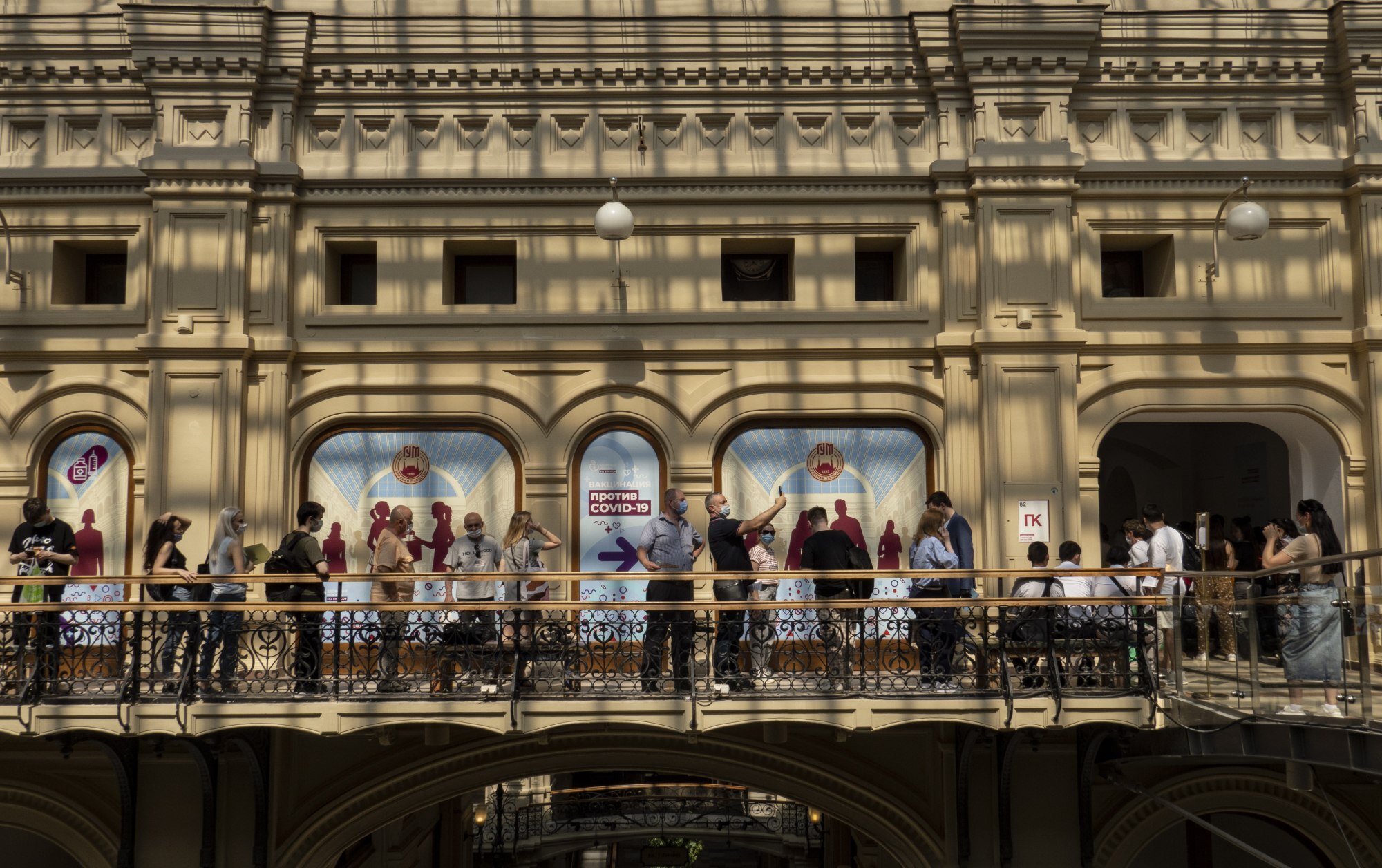
Russia reports 17,906 new infections
Russia’s national coronavirus task force on Saturday reported 17,906 new infections, more than double the daily tally from early June.
More than half of the new infections are in Moscow, where cases have tripled this month. The soaring case count has caused alarm among officials, who have increased measures to obstruct the spread.
Moscow, its outlying area and two other Russian regions this week ordered mandatory vaccinations for workers in retail, education and other service sectors. Moscow has closed food courts in shopping centers and restricted restaurants and bars in the capital to takeaway orders from 11pm to 6am.
Russians are widely resistant to vaccinations and only about 12 per cent of the population has received a shot. Nearly 5.3 million cases have been reported in the country of 146 million, with 128,911 deaths, but experts consider both numbers undercounts.
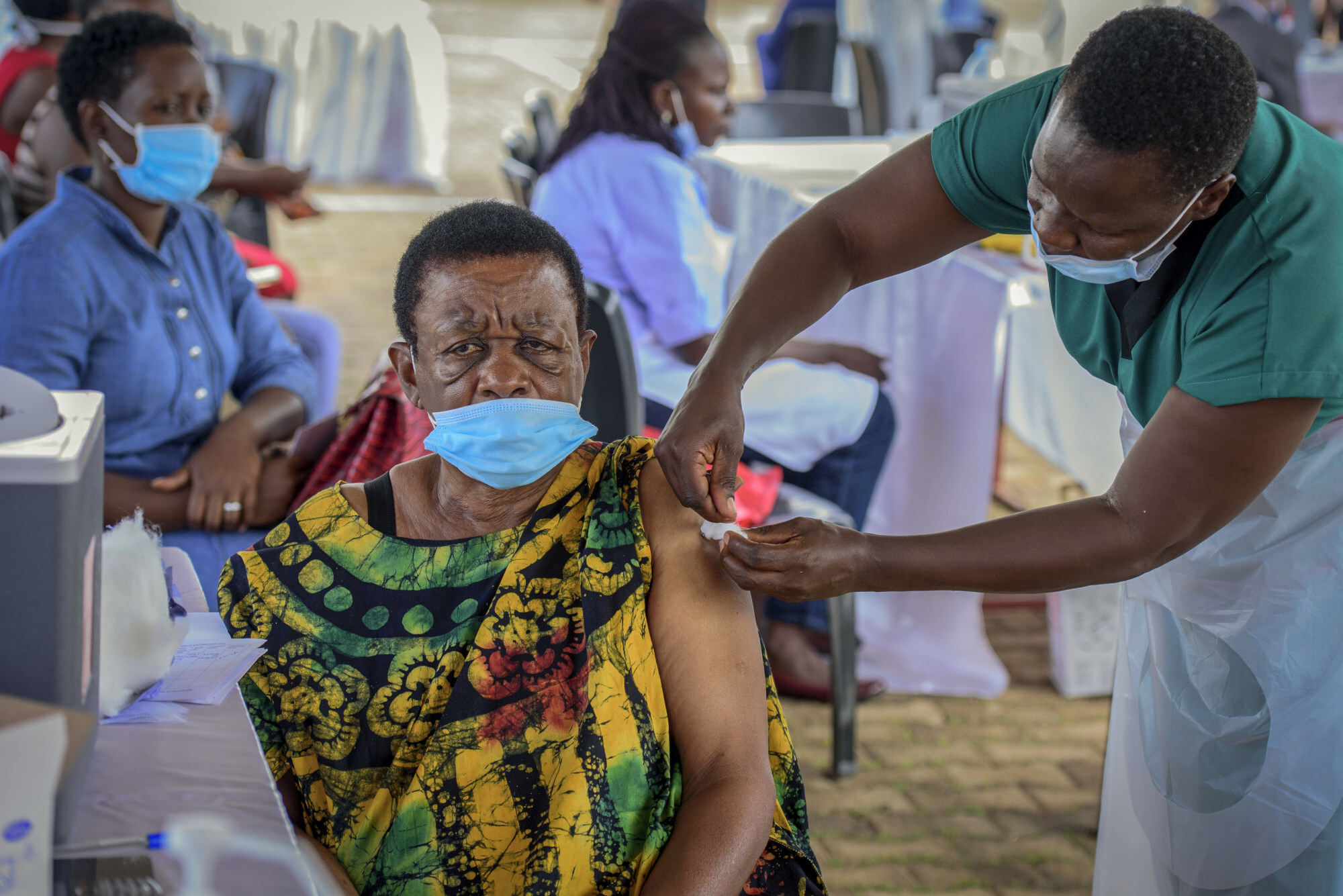
Uganda tightens lockdown measures to combat surge in infections
Uganda is tightening its lockdown measures to try to stem a surge in coronavirus infections in the East African country that is seeing an array of variants.
The measures announced late on Friday by President Yoweri Museveni include a ban on private and public transport within and across districts, including in the capital Kampala. Only vehicles carrying cargo and those transporting the sick or essential workers are permitted to operate on the roads.
The normally crowded shops in downtown Kampala have also been ordered shut. An ongoing nighttime curfew will stay in place. The new measures will last 42 days.
Uganda is among some African countries seeing a dramatic rise in the number of infections amid a vaccine shortage. It has confirmed 68,779 infections, including 584 deaths. The actual totals are believed to be much higher.
The Africa director of the World Health Organization spoke on Thursday of a “sobering trajectory of surging cases” in Africa that she said “should rouse everyone to urgent action.”
Africa’s 1.3 billion people account for 18 per cent of the world’s population, but the continent has received only 2 per cent of all vaccine doses administered globally.


